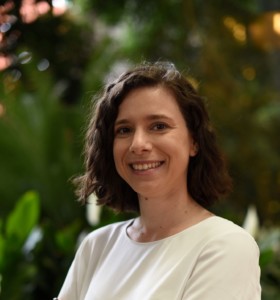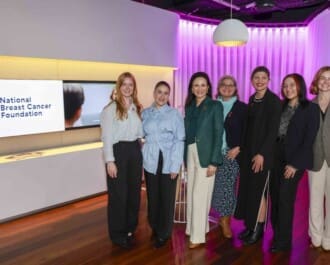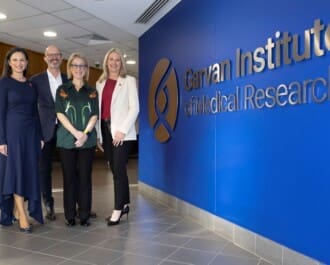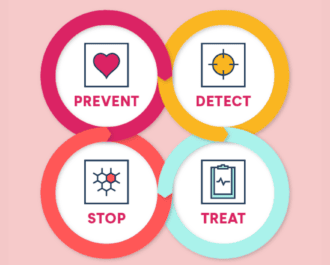
As the availability of genetic tests for breast cancer increases, many women have to decide whether they want to know this information. Whilst knowledge of genetic risk can help ensure appropriate screening and management, there is also the potential that the knowledge could cause emotional stress.
Thankfully, a new study from the University of New South Wales has reported that women who did find out their genetic risk were unlikely to regret their decision.
The study was led by NBCF-funded researcher Dr Tatiane Yanes, as part of her PhD degree. She surveyed 208 women who were invited to receive a “polygenic risk score”, or PRS. The PRS involves an analysis of 62 genetic variants including two of the unusual variants found in the well-known breast cancer BRCA1 and BRCA2 genes. The testing improves (or adds) to our understanding of how our genetics contribute to breast cancer risk.
“PRS is a new type of genetic testing that we haven’t been able to offer before because we’ve only been focusing on single genes,” explained Dr Yanes. “The vast majority of women who get screened for the single BRCA genes come back negative, but that doesn’t always mean there’s no breast cancer risk. PRS looks much more broadly at variants in your DNA.”

NBCF-funded researcher Dr Tatiane Yanes
Of the 208 study participants, 165 women (80 per cent) agreed to receive their PRS while the remaining 43 participants declined to be informed. Of those who received the information, around two-thirds had a “high-risk” PRS. As expected, those with a higher risk were slightly more distressed and anxious than those with a low score, but not to a level that required additional psychological support.
Using a validated tool called the Decision Regret Scale, Dr Yanes then assessed how the women felt about their decision, at 2 weeks and 12 months after the testing was completed. They found that women who had not received their results were three times more likely to regret the decision, than those who were told the information.
“Those who had received the results reported basically minimal regret. In fact, more than half of them actually had a score of zero, which means no regret at all,” says Dr Yanes.
Dr Yanes explained that this study will enable her team to develop best practice guidelines on how to deliver PRS results to women.
“We want doctors to be able to provide women with clear information that explains what the PRS is, and the type of access women have to these genetic services. What we don’t want is that people decline information out of fear, or aren’t able to make an informed decision because they may not fully understand the information or what the implications for them are.”
This work was proudly funded by the National Breast Cancer Foundation, through a co-funded postgraduate scholarship with the National Health and Medical Research Council (NHMRC). The findings have recently been published in the journal Genetics in Medicine.
More News Articles
View all News


